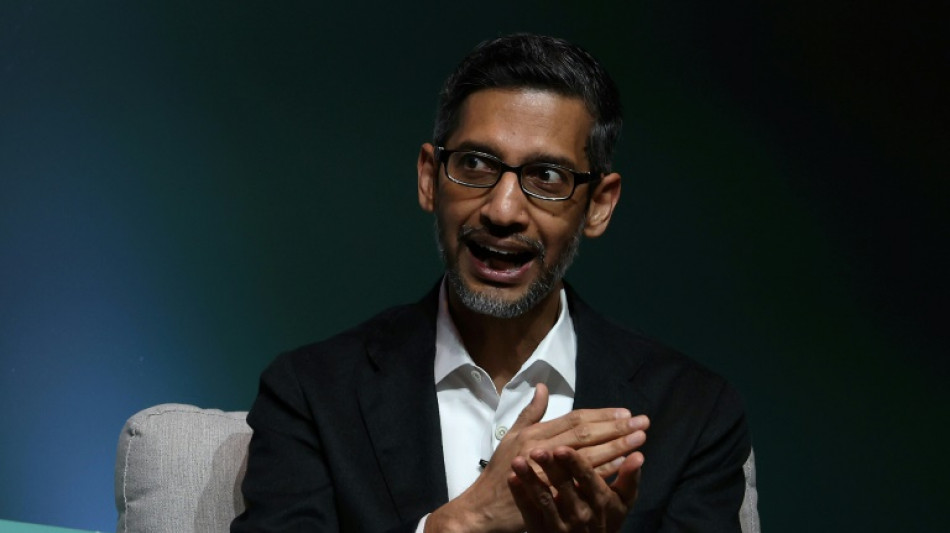
RBGPF
61.2800


Google's parent Alphabet on Thursday trounced revenue and profit expectations for the first quarter of this year, causing shares to leap more than 12 percent.
Alphabet reported profit of $23.7 billion on revenue of $80.5 billion, crediting growth in cloud computing, YouTube, and online search advertising.
Alphabet chief executive Sundar Pichai credited artificial intelligence with helping drive the Silicon Valley tech giant's business.
"We are well under way with our Gemini era and there's great momentum across the company," Pichai said, referring to an AI model that powers services across the Google platform.
"Our leadership in AI research and infrastructure, and our global product footprint, position us well for the next wave of AI innovation."
Alphabet shares that ended the formal trading day down slightly leapt more than 12 percent to $177 in after-market trades that followed release of the earnings figures.
Google ads brought in a total of $61.7 billion in the quarter, compared with $54.5 billion in the same period the prior year, according to the earnings report.
Ads served up at YouTube accounted for $8 billion in revenue, up from $6.7 billion in the first quarter of 2023, earnings figures showed.
Some $9.5 billion was brought in by Google's cloud computing unit, compared with $7.5 in the same quarter a year earlier.
The earnings come as Google, Microsoft, Amazon and other rivals competing in the hot field of AI face scrutiny from regulators in the US and Europe.
The US Federal Trade Commission early this year launched a study of AI investments and alliances as part of an effort to make sure regulatory oversight can keep up with developments in artificial intelligence, and stop major players shutting out competitors in a field promising upheaval in multiple sectors.
"Our study will shed light on whether investments and partnerships pursued by dominant companies risk distorting innovation and undermining fair competition," said Lina Khan, head of the Federal Trade Commission, in a statement.
One major concern is that generative AI, which allows for human-level content to be produced by software in just seconds, requires a massive amount of computing power, something that big tech companies are almost uniquely capable of delivering.
Amazon -- through its Amazon Web Services arm -- Microsoft and Google are the world's biggest providers of cloud-based data centers, which store and process data on a vast scale, in addition to being some of the world's richest companies.
Microsoft has moved the fastest in the generative AI revolution with a reported $13 billion investment in OpenAI, the creator of ChatGPT.
Microsoft just weeks ago announced a $2.9 billion investment over the next two years in Japan to bolster the country's push into artificial intelligence and strengthen its cyber defenses in the face of threats from China and Russia.
Meanwhile, Facebook-owner Meta on Wednesday said its quarterly profits soared last quarter, but worries about the cost of artificial intelligence saw its share price take a hit on Wall Street.
T.Ueda--JT